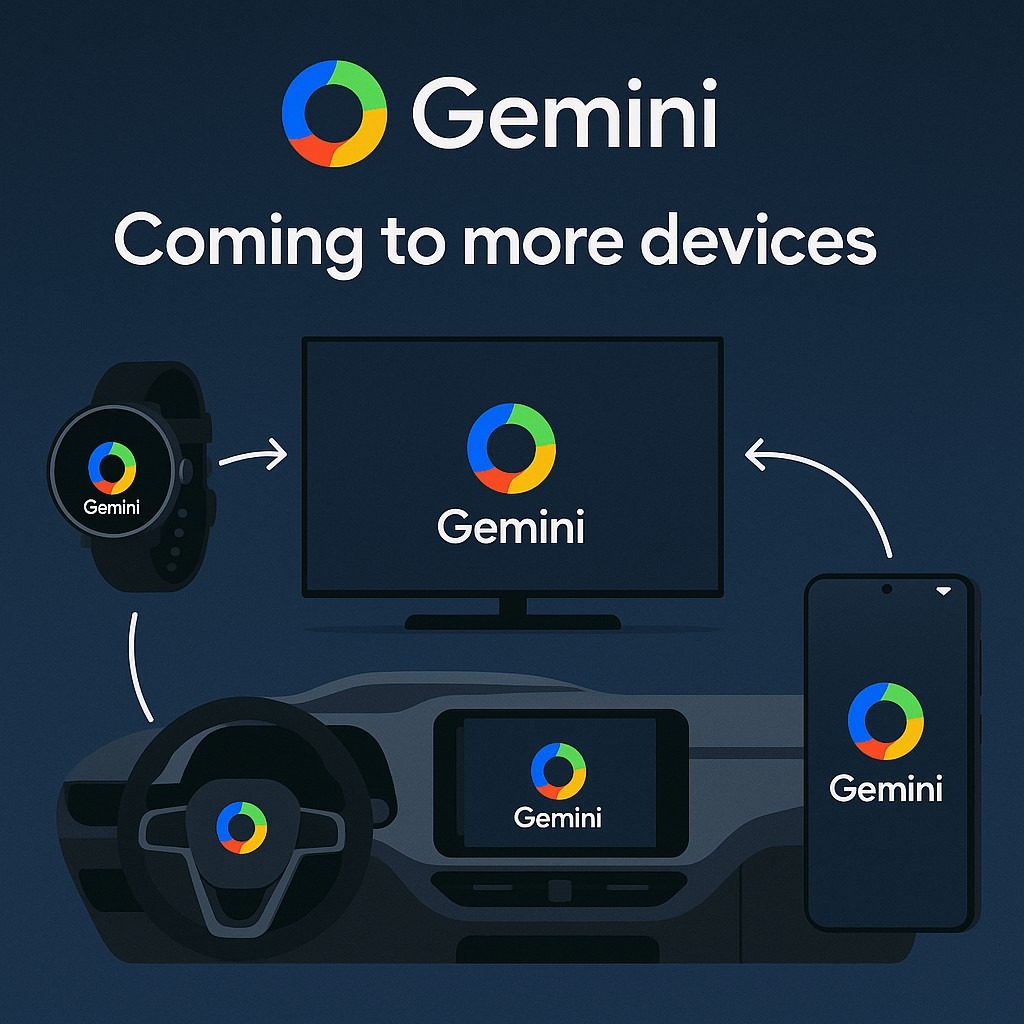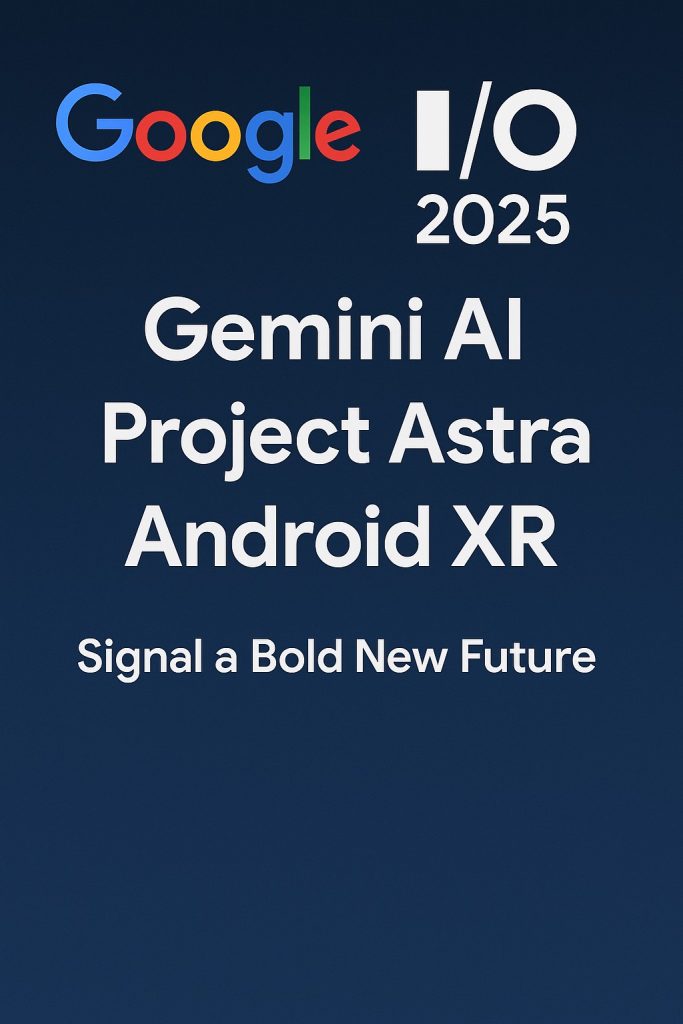Google’s I/O 2025 keynote delivered more than just updates, it revealed a radical shift in how we’ll interact with technology. CEO Sundar Pichai took the stage with unmistakable excitement, unveiling Gemini AI, Project Astra and new advancements in extended reality (XR). Each of these breakthroughs points to Google’s growing ambition to lead the next wave of smart, immersive tech.
Gemini AI: A Seamless Multi-Device Experience
One of the biggest announcements was Gemini AI’s expansion across the Google ecosystem. This AI model now powers everything from Android phones and Wear OS smartwatches to Google TV and Android Auto.
What makes Gemini stand out is its ability to offer context-aware assistance. For example, if you’re planning a trip, Gemini can organize your calendar, suggest outfits based on weather, and offer route updates—all across different devices.
Unlike previous voice assistants, Gemini understands your intent more deeply. It connects tasks across platforms with near-human intuition. As Google explains, Gemini isn’t just a helper—it’s becoming an ever-present companion.
Project Astra: Your Smartest Visual Assistant Yet
While Gemini is powerful, Project Astra might be even more exciting. Built by DeepMind, this AI tool can see, hear, and speak in real time. During the live demo, it identified objects, answered questions about surroundings, and even remembered past interactions.
This means Astra could assist with everything from home maintenance to shopping. Want to know where you left your keys? Ask Astra. Need help fixing a leaking pipe? Astra can analyze the problem using your phone’s camera and guide you step by step.
Although it’s still in development, Astra shows enormous promise. Google aims to integrate it into phones and smart glasses soon. According to TechRadar, it may redefine how we use AI in physical spaces.
Android XR: Google’s New Reality Platform
Extended reality also took center stage with the launch of Android XR, a platform built in collaboration with Qualcomm and Samsung. It’s designed to support mixed reality (MR) and virtual reality (VR) devices, which will debut later this year.
This initiative suggests Google is doubling down on immersive tech. With Apple’s Vision Pro already making waves, Android XR could become a key competitor. It promises better rendering, intuitive hand tracking, and seamless app compatibility with Android.
If successful, Android XR will make extended reality more accessible and affordable. Google’s unified approach may also help developers build once and deploy across multiple platforms—something that’s been difficult until now.
Why This Matters
Google I/O 2025 wasn’t just about product launches. It marked a deeper strategy shift. The company is embedding AI and XR across its services, turning passive tools into proactive, intelligent partners.
This evolution matters because it raises the bar for tech ecosystems. Google wants to ensure your devices don’t just react—they anticipate, advise, and adapt. According to Axios, the tech industry is moving toward agents, not just assistants.
Final Thoughts
Google’s announcements this year reflect a clear direction: smarter, more immersive, and deeply integrated technology. From Gemini AI to Project Astra and Android XR, the future looks bold, fast, and intelligent.
For developers, it’s an exciting time to build. For users, it’s a glimpse into a world where your devices truly know you. And for Google, it’s another giant step toward leading the AI-first era.


